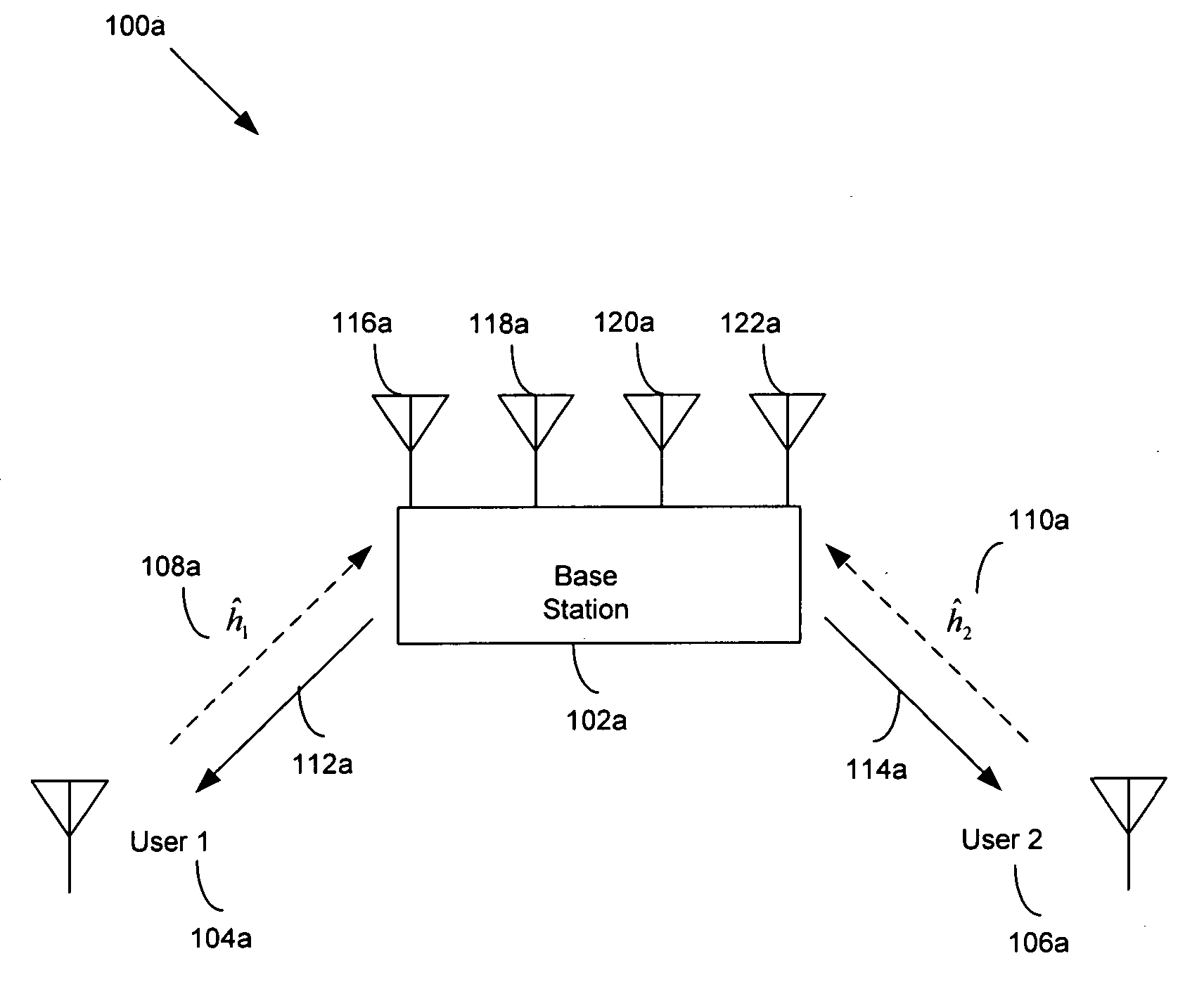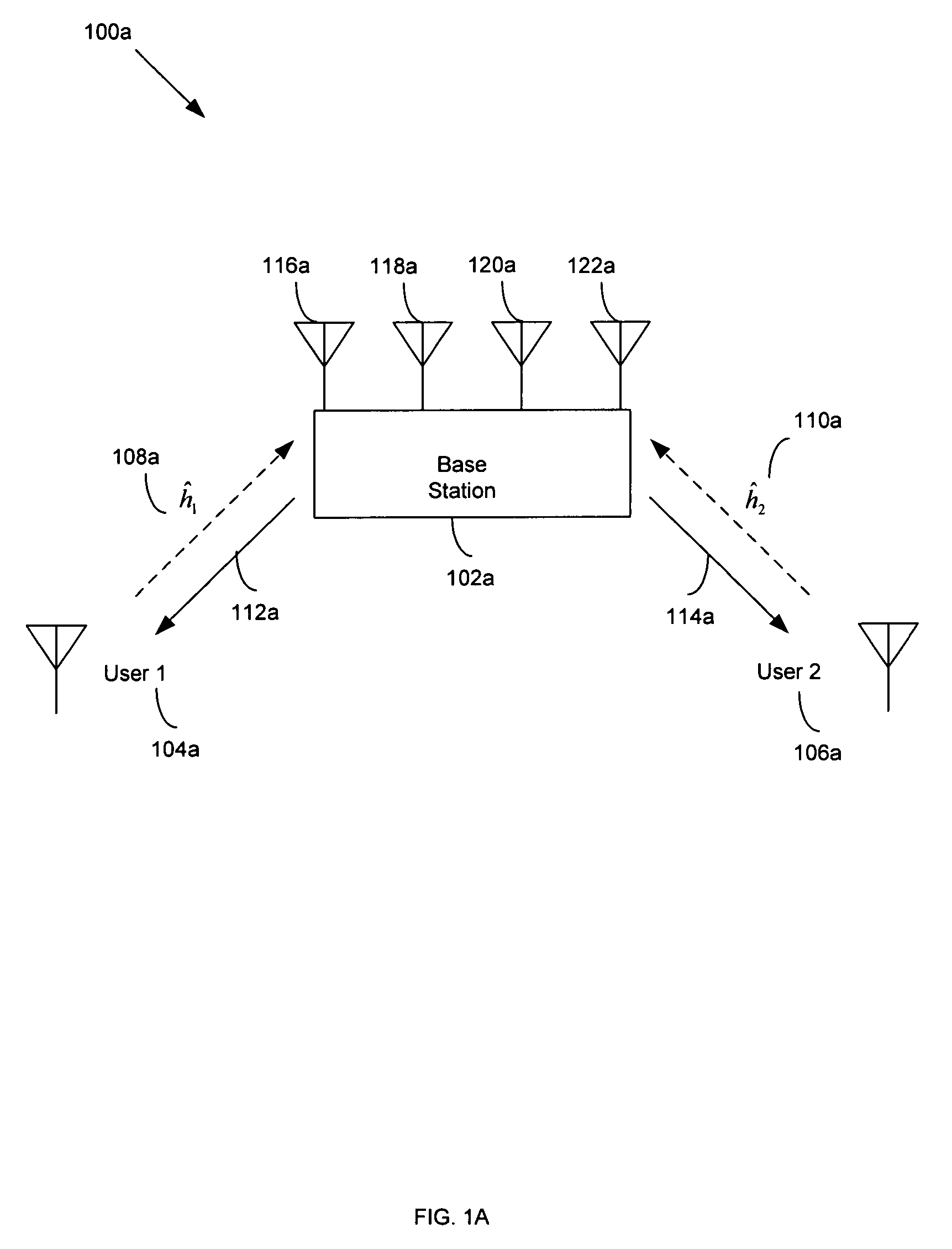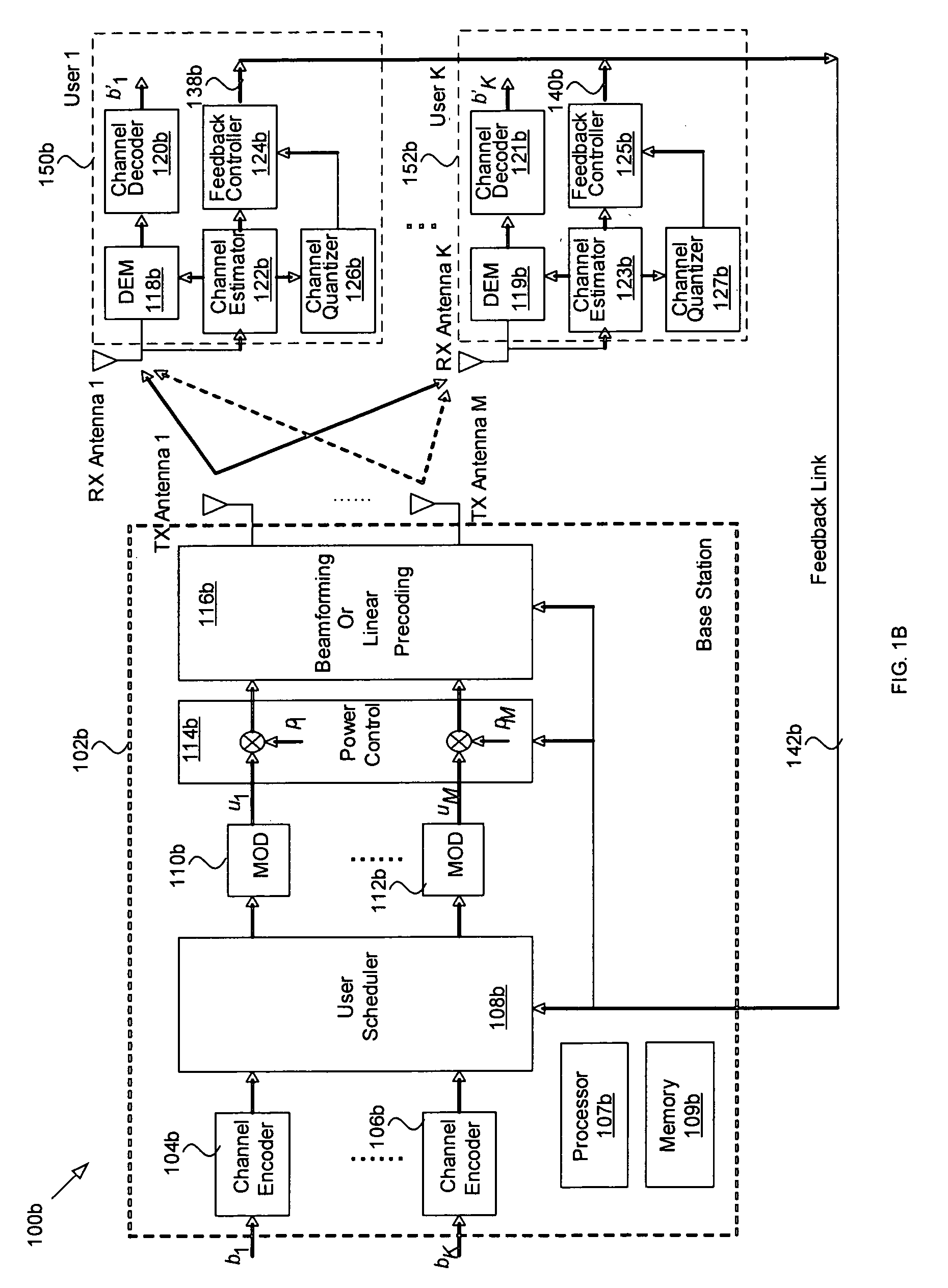Method and system for a simplified user group selection scheme with finite-rate channel state information feedback for FDD multiuser MIMO downlink transmission
a multi-user, multi-input multi-output technology, applied in the field of signal processing in communication systems, can solve the problems of limited multi-antenna system wide spread in wireless communications, increased size, complexity,
- Summary
- Abstract
- Description
- Claims
- Application Information
AI Technical Summary
Problems solved by technology
Method used
Image
Examples
Embodiment Construction
[0020]Certain embodiments of the invention may be found in a method and system for a simplified user group selection scheme with finite-rate channel state information feedback for frequency division duplex (FDD) multiuser multiple-input-multiple-output (MIMO) downlink transmission. Aspects of the method may comprise selecting, from a plurality of users, a first user having a channel gain that is greater than a channel gain corresponding to a remaining portion of the plurality of users. At least a second user may be selected from a portion of the remaining portion of the plurality of users. The selected at least the second user has a channel direction that may be approximately orthogonal to that of the first user. The channel gain may be defined by a quantized channel gain. A quantized channel direction of the selected first user may be determined for the selecting the at least the second user. In this regard, a simplified user group selection scheme in accordance with an embodiment ...
PUM
 Login to view more
Login to view more Abstract
Description
Claims
Application Information
 Login to view more
Login to view more - R&D Engineer
- R&D Manager
- IP Professional
- Industry Leading Data Capabilities
- Powerful AI technology
- Patent DNA Extraction
Browse by: Latest US Patents, China's latest patents, Technical Efficacy Thesaurus, Application Domain, Technology Topic.
© 2024 PatSnap. All rights reserved.Legal|Privacy policy|Modern Slavery Act Transparency Statement|Sitemap



